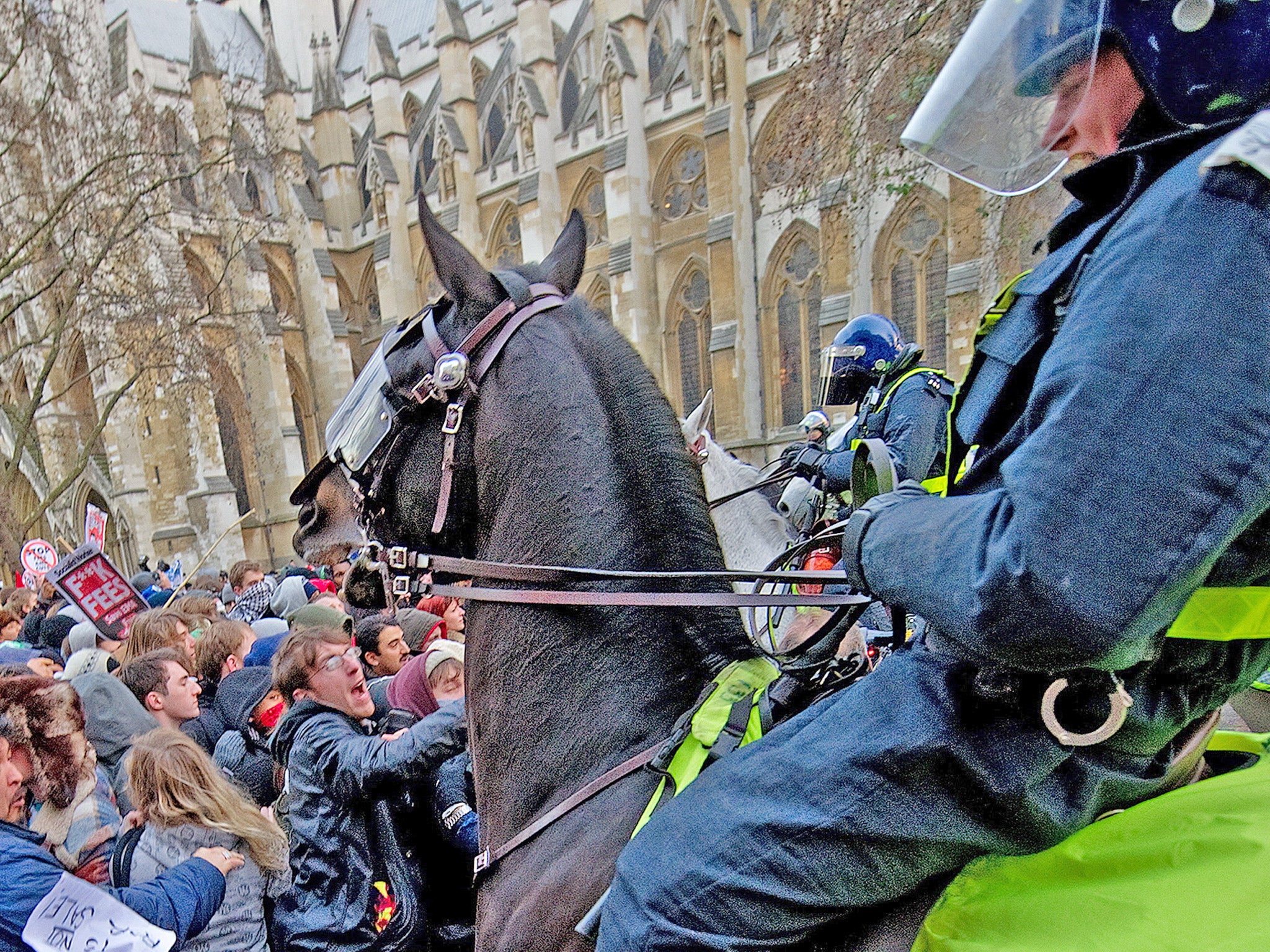
While a number of British students take to London’s streets in peaceful protest armed with banners, posters and organized chants many more will be running round conflict ravaged downtown Los Angeles armed with sniper rifles and shotguns. Of course, this second group are online and playing Call of Duty: Black Ops 2 and so won’t be disrupting commuters or worrying the police.
The distraction of video games and the lure of Internet culture take up a lot of energy and can sap the average student of the will and determination to go out and protest. While the sentiment that these protests are in line with student opinion is demonstrable, the amount of students actively campaigning for improvements in education and more financial support is relatively small. It is far easier to spend your time as a student trying to avoid or escape the pressure of your workload than campaigning for change in higher education policy. The enveloping calm that day-time TV and video games can offer is for many, preferable to carrying a sign through the streets of London hampered by the cold, mud and nagging feeling that perhaps you could be having a nicer time somewhere else.
What the Internet now offers us is an incredibly easy way out of all that hardship. Getting your voice heard can be as simple as signing up to an online protest, pledging your support with an online signature. You could also use your twitter account to apologise for not making it to the demonstration and wish well those who are there.
A brief scan of the messages posted referencing the demonstration shows that for those who couldn’t make it, a token comment expressing support was enough. The Internet’s offer of making such a minor contribution and yet still feeling as though you are part of the movement is unlikely to result in progress. Replacing the masses that proudly followed Martin Luther King Jr. through the streets of Washington in 1963 with a collection of hastily typed tweets (‘Srry cndt make it #too much standing’, ‘#Ihaveadreamtoo’) really won't have the same inspiring effect.
Gauging what the shifting and ever-altering student body values as important content does not inspire confidence in their ability to effectively get involved in changing policy. Typing ‘Nick Clegg’ into YouTube brings up a smoothly edited version of the Liberal Democrats leader’s apology for breaking his pledge on tuition fees. His voice has been heavily auto-tuned achieving a similar sound to Cher’s Believe and to the thousands of other auto-tuned videos on Youtube. This makes his speech even more awkward and even less effective in appealing to the students he has left to face the higher fees he promised he would never allow.
It is a fairly light-hearted and humorous spearing of a political figure and otherwise would not be that remarkable if it did not overshadow all other videos of Mr Clegg. It has just over two million views. If you add to that the numerous other edited videos with different songs in the background or the one with an animated cat speaking Clegg’s words then the number grows much higher. Comparatively, an unedited video of a serious interview with the Lib Dem leader about benefits had a paltry view count clocking in under 500.
The popularity of the video was so great when uploaded that Mr Clegg was forced to watch it on television by Andrew Marr. Cue much squirming in seats. The efforts of the video’s creator, cutting, editing, tuning and uploading, resulted in a one of the leaders of this country being forced to watch his own words parroted robotically back at him in front of a TV audience. The results of the student demonstration in London will have to be seen but are unlikely to have caused as much consternation to political heavyweights as the video did to poor Mr. Clegg. The video’s message summed up in one word ‘sorry’, sung out in a warbling electronic whelp, has been featured on banners and placards in demonstrations. The assertion that ‘sorry’s not good enough’ is being paraded around Kennington Park as I write.
Is this the way it should be? Understandably the banners need to be funny and biting to cheer up those marching in the rain and mud but should the time and effort of the UK’s students be invested in comedic YouTube videos? The hours clocked watching it and the countless other political parodies loom giant-like over the hours spent on forming coherent and effective political groups, policy and action. The hours spent meandering around the Internet seems to be rising as the time spent engaging with politicians decreases. The group of informed student leaders and active protesters at my university were clearly outnumbered by video game and curry fanatics if the respective sizes of their societies are indicators of importance.
There are many opportunities available online to inform students of developments in governmental policy on higher education. University newspapers can, and indeed should, place great importance on these key issues. Focus however seems to more readily drift to other, more diverting areas. It could be football, reality TV, or the latest videos of gamers blowing up zombies while diving of buildings. Watching a video of some rain soaked 20-somethings yelling hoarsely about Education Maintenance Allowance is always going to be underwhelming, no matter how much auto-tune you use.
Subscribe to Independent Premium to bookmark this article
Want to bookmark your favourite articles and stories to read or reference later? Start your Independent Premium subscription today.

Join our commenting forum
Join thought-provoking conversations, follow other Independent readers and see their replies